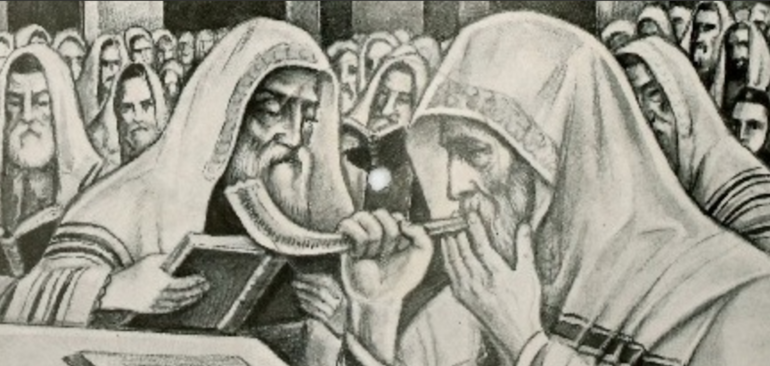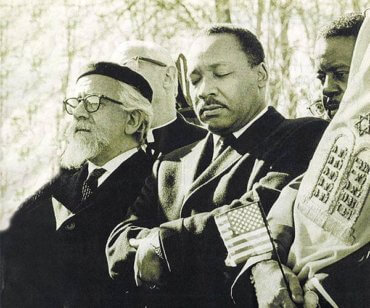
How Do We Blow Shofar During a Pandemic?
Dear JITC-
How do we deal with blowing a shofar during a pandemic that spreads through viral droplets?
Thank you,
Ryan
Dear Ryan-
I’m glad you asked this question because it’s something that has concerned me literally for months. Unfortunately, the reason it concerned me was because, as you say, blowing a shofar spreads droplets – which is problematic at this time – and I didn’t know what the approach of our halachic leadership was going to be. Happily, between the time you submitted your question and me answering it, our Torah authorities have addressed the matter, so I now have something concrete to say on the subject.
Before I get to the halachic ruling, let me share the information I had gathered prior to that statement being made.
The Dutch Conference of Rabbis, the Netherlands’ Orthodox rabbinical body, ruled that, because of the pandemic, the shofar should only be blown outside and sparingly. Dutch rabbis encouraged congregations to blow shofar in the shul’s yard rather than in the building. They also recommended blowing the shofar outside the homes of those who cannot attend services, the sizes of which are being limited to a few dozen people.
United Synagogue in the UK noted that it’s only obligatory for people to hear 30 shofar blasts, rather than the 100 we normally blow. They recommended that communities organize multiple shofar blowings both on- and off-site, possibly in a local park if doing so will not disturb other residents. They also suggested that communities might consider holding shofar blowings in different locations throughout the day in order to enable people to fulfill the mitzvah while maintaining social distance.
Rav Hershel Schachter wrote:
Due to the need for social distancing during the current pandemic, there is a concern about adequate spacing in shuls for the Yamim Noraim. Minyanim will probably have to abbreviate the davening in order to accommodate the many who will be in need of an indoor space to daven. If need be, all of the Piyutim can be deleted as well as some of the extra shofar blowing that we have the custom to do throughout the davening. (The basic shofar blasts are the ones after maftir and those included in the chazaras Hashatz).
Dr. Roy Hoffman of Hebrew University’s NMR Laboratory experimented by blowing liquid nitrogen through a shofar. He concluded that placing a mask on the end of a shofar does reduce the spread of droplets but doing so also makes it harder to blow and affects the sound. This, he says, may defeat the purpose but one would need to need to ask a rabbi.
Which brings us to the joint statement of the Orthodox Union and the Rabbinical Council of America, which contains guidelines for synagogues for the High Holidays. Some of these guidelines we have already discussed, such as holding shorter services of fewer congregants in order to accommodate social distancing. Some of the suggestions may sound drastic – for example, “Options may include eliminating Mi Shebeirachs; saying the first sections of davening at home and beginning the public minyan at Nishmat Kol Chai; reducing the amount of singing and length of speeches; and possibly eliminating certain customary piyyutim” – but these are exceptional times.
Relevant to your question, however, is the part that reads:
An appropriate precaution during shofar blowing would be to place a surgical mask over the wider end of the shofar, as this does not appear to alter the sound of the shofar blast. Some may point the shofar out an open window or door, or near and towards the front wall or aron kodesh, facing away from the congregation.
I’m thrilled by this ruling even as I’m surprised by it.
I’m surprised by this ruling because I would think that the mask does change the sound of the shofar, which would be problematic. On this subject, Dr. Hoffman of Hebrew U cited the mishna in Rosh Hashana (3:7) regarding one who blows shofar in a pit, though I think the ensuing discussion in the gemara (RH 27b), about plating a shofar with gold, might be more germane.
The reason I assume that the mask changes the sound of the shofar is based on the anecdotal observation that when we speak through a mask, it alters the sound of our voices. Nevertheless, our authorities have ruled that such is not the case vis-à-vis shofar blowing, a conclusion that thrills me from a public-safety standpoint.
Addressing this matter in the 5 Towns Jewish Times (Aug. 21, 2020), Rabbi Aaron E. Glatt, MD, writes that blowing shofar outdoors is preferable to doing so indoors, though indoors will also be safe if appropriate precautions are taken. Citing the halachic approval of Rav Mordechai Willig, Rabbi Glatt advises covering the open end of the shofar with a mask, blowing into an empty room or through an open window, and that the shofar preferably be blown by one who has already had Covid-19 (and therefore has antibodies). Rabbi Dr. Glatt expresses more concern regarding the large gatherings in which the shofar will be blown than about the actual blowing, so do your part by remembering proper masks and social distancing!
One last note: Dr. Cyrille Cohen, head of the immunotherapy laboratory at Bar-Ilan University and a member of the Israeli Health Ministry’s advisory committee on vaccines, is also a veteran shofar blower. He opines that the mask should be tightly affixed to the end of the shofar. This may seem self-evident but if you watch the video of Dr. Hoffman’s experiment with the liquid nitrogen, you’ll note that the mask was only laid across the open end of the shofar. (One might wonder how the results would have differed had the mask in the experiment been tightly affixed.) The information I’ve seen from halachic sources thus far doesn’t specify the manner in which the mask should cover the end of the shofar, so I guess that’s a detail for your own rabbi to ascertain if a public statement hasn’t been made before Rosh Hashana.
I probably don’t need to tell anyone this, but 2020 is not a normal year. Standard operating procedures just aren’t going to work. We can’t gather in our shuls for normal holiday services with normal shofar blowing. If one is immunocompromised or in a high-risk group, one should stay home. If one is apprehensive about shofar blowing, social distancing or any other aspect of synagogue attendance, one should reach out to their shul rabbi or president in order to discuss their concerns. In the current climate, it’s only prudent to exercise all due caution even in things we normally take for granted.
Sincerely,
Rabbi Jack Abramowitz
Educational Correspondent
Follow Ask Rabbi Jack on YouTube
If you found this content meaningful and want to help further our mission through our Keter, Makom, and Tikun branches, please consider becoming a Change Maker today.







